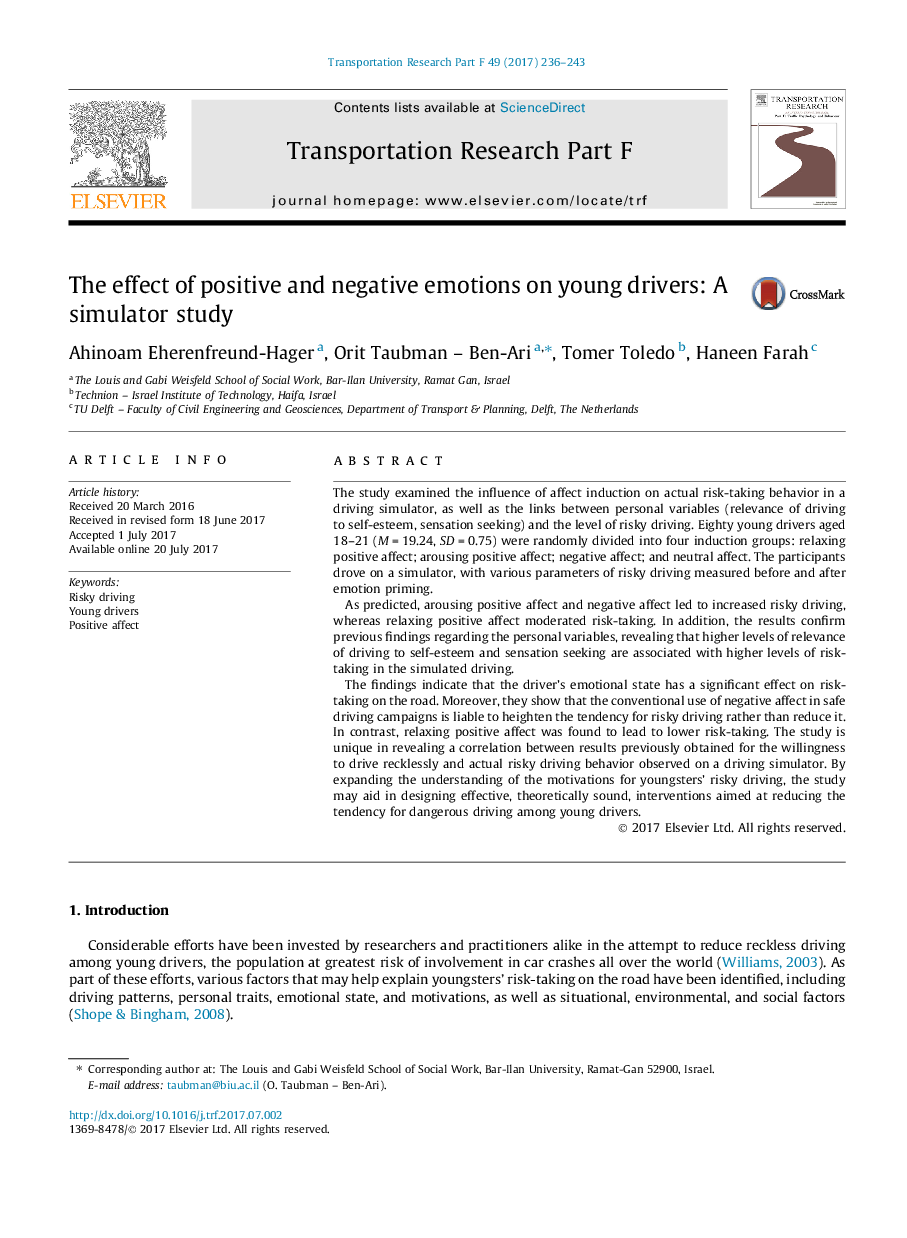| کد مقاله | کد نشریه | سال انتشار | مقاله انگلیسی | نسخه تمام متن |
|---|---|---|---|---|
| 5037290 | 1472437 | 2017 | 8 صفحه PDF | دانلود رایگان |
- Young drivers' emotional state has a significant effect on risk-taking in a driving simulator.
- Arousing positive affect and negative affect led to increased risky driving.
- Relaxing positive affect moderated risk-taking.
- A higher level of relevance of driving to self-esteem was associated with higher risk-taking.
- Higher sensation seeking was associated with higher risk-taking in the simulated driving.
The study examined the influence of affect induction on actual risk-taking behavior in a driving simulator, as well as the links between personal variables (relevance of driving to self-esteem, sensation seeking) and the level of risky driving. Eighty young drivers aged 18-21 (MÂ =Â 19.24, SDÂ =Â 0.75) were randomly divided into four induction groups: relaxing positive affect; arousing positive affect; negative affect; and neutral affect. The participants drove on a simulator, with various parameters of risky driving measured before and after emotion priming.As predicted, arousing positive affect and negative affect led to increased risky driving, whereas relaxing positive affect moderated risk-taking. In addition, the results confirm previous findings regarding the personal variables, revealing that higher levels of relevance of driving to self-esteem and sensation seeking are associated with higher levels of risk-taking in the simulated driving.The findings indicate that the driver's emotional state has a significant effect on risk-taking on the road. Moreover, they show that the conventional use of negative affect in safe driving campaigns is liable to heighten the tendency for risky driving rather than reduce it. In contrast, relaxing positive affect was found to lead to lower risk-taking. The study is unique in revealing a correlation between results previously obtained for the willingness to drive recklessly and actual risky driving behavior observed on a driving simulator. By expanding the understanding of the motivations for youngsters' risky driving, the study may aid in designing effective, theoretically sound, interventions aimed at reducing the tendency for dangerous driving among young drivers.
Journal: Transportation Research Part F: Traffic Psychology and Behaviour - Volume 49, August 2017, Pages 236-243
